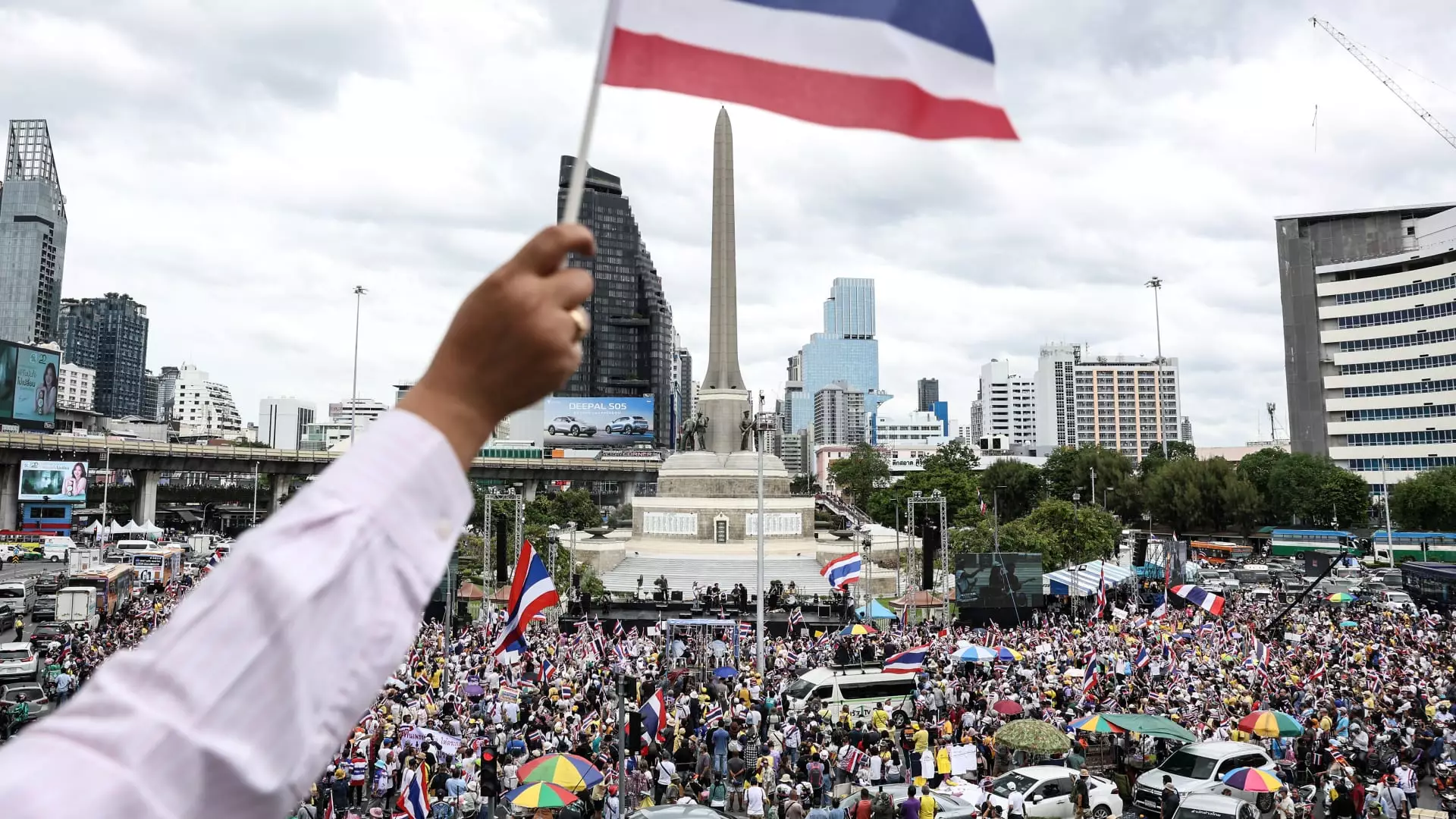Thailand’s latest surge in political unrest reveals a disturbing pattern where nationalism is weaponized against elected leaders, threatening democratic stability. The recent mass mobilization in Bangkok demanding Prime Minister Paetongtarn Shinawatra’s resignation over a diplomatic spat with Cambodia is not just an isolated protest but part of a long-standing tactic used by political opponents who exploit nationalist sentiments. This movement, led by the United Force of the Land, echoes prior campaigns that eroded the legitimacy of Shinawatra-backed governments, contributing to the military coups of 2006 and 2014. It’s clear that nationalism here is less about genuine patriotism and more about a strategic effort to destabilize civilian rule under the pretext of defending sovereignty.
The Risk of Militarized Politics Amid a Fragile Coalition
Paetongtarn Shinawatra’s government is walking a political tightrope. With her coalition fractured after the Bhumjaithai Party’s defection, which was triggered by the leaked phone call controversy, her hold on power is tenuous. The political landscape in Thailand is complicated by the entrenched power of the military, which wields significant influence over civilian affairs. When Paetongtarn’s private critique of a Thai army commander became public, it transcended typical political gossip and struck a nerve in a country where the military demands unquestioned loyalty. The military’s shadow undermines the democratic process, and its implicit presence looms over parliamentary votes and judicial investigations that could topple the Prime Minister.
Judiciary as a Political Tool: Threats to Democratic Institutions
Judicial bodies in Thailand have historically been used as instruments to suppress political adversaries under the facade of legality. Following the leaked conversation, the involvement of the Constitutional Court and anti-graft agencies in investigating Paetongtarn may not be impartial justice but rather another chapter in the pattern of judicial intervention disrupting elected governments. This undermines public faith in the very institutions designed to uphold democracy and accountability. When courts become politicized arenas, the balance of power fractures, and the electorate’s mandate is vulnerable to being overturned not by ballots but by benches.
Diplomatic Failures Exacerbating Internal Divides
The fallout from the leaked phone call with Cambodia’s former premier, Hun Sen, who publicly lambasted Paetongtarn and even called for regime change, reveals diplomatic incompetence and a failure to manage sensitive interstate relations effectively. The incident has stirred nationalist outrage domestically and given ammunition to political opponents. Thailand’s foreign ministry’s preference for a diplomatic resolution contrasts sharply with the incendiary rhetoric from politicians and militia groups within. This disconnect highlights an alarming trend where foreign policy blunders are swiftly exploited for internal political gains, with little regard for the long-term consequences on regional stability and economic recovery.
Implications for Thailand’s Economic and Social Future
Thailand’s economy, already fragile, risks further decline amid ongoing political instability. The protests and political infighting disrupt economic confidence necessary for investment and recovery from recent global challenges. Moreover, the continuous politicization of nationalism and military influence stifles meaningful reforms, leaving the country stuck in a cycle of instability. While Paetongtarn’s stance on allowing peaceful protest is a commendable democratic gesture, in reality, her government’s survival hinges less on popular will and more on navigating entrenched power structures resistant to genuine political evolution. This crisis reflects an urgent need for Thailand to rebuild democratic norms and strengthen civilian institutions before socio-economic decline deepens.


Leave a Reply